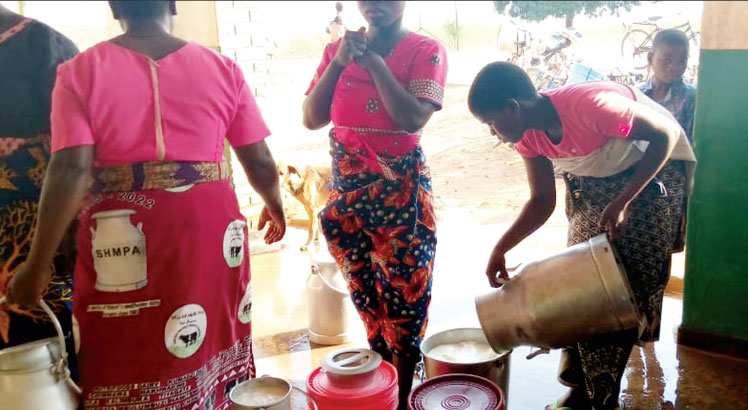Power outages hit hard dairy farmers
Prolonged power outages continue to negatively impact milk producers, with Mangunda Milk Bulking Group in Thyolo District indicating that it loses an average of 80 000 litres of milk or K18 million per month.
But the potential loss could be more taking into account the number of milk bulking groups and players along the value chain.
Speaking during a media tour organised by Transformation Agriculture through Diversification and Entrepreneurship (Trade) Programme in Thyolo and Blantyre last week, Mangunda Milk Bulking Group treasurer Elias Piringu said on a day, the group buys 4 500 litres of milk which it supplies to Lilongwe Dairy.

“If you were here a few days ago, you could have witnessed us getting rid of 4 600 litres of milk that went sour due to unreliable load-shedding schedule by the Electricity Supply Corporation of Malawi,” he said.
Echoing Piringu’s sentiments, Namahoya Milk Bulking Group treasurer Andrew Maone said they work with 585 farmers and buy 4 900 litres of milk per day at K225 per litre.
“Our major challenge is electricity blackouts. We have a generator, but it is too small to run two machines and in the end we lose a lot of milk,” he said.
Blantyre-based Mach Milk Company managing director Madalitso Phiri said they have scaled down and are now producing 50 kilogrammes of powdered milk a day due to electricity challenges.
“We are failing to meet the demand due to prolonged blackouts. We need about five continuous hours of power for production because if power goes out in the course of production, the entire milk in the machines is spoilt,” he said.
The company buys its milk from Chadzunda Milk Association and pleaded for support from Trade to address the challenges.
Trade knowledge and communication management officer Oscar Ulili said through the Agriculture Commercialisation Innovation Fund, the programme seeks to promote agriculture commercialisation through grants.
He said Trade will also coordinate with the farmers to form cooperatives to establish easy markets, promote value addition and construct roads for easy access to markets.
Said Ulili: “We are planning to establish milk bulking centres and provide solar energy to those areas that do not have Escom power for better preservation of their milk.
“We aim at uplifting the livelihood of farmers. We expect these farmers to make proposals on how they want Trade to intervene in their business. With a convincing proposal, they can get up to a K100 million grant.”
Trade programme is a six-year Government of Malawi initiative funded by the International Fund for Agricultural Development and Organisation of Petroleum Countries Fund for International Development.
In the first two to three years, the programme will be implemented in 11 districts.






One Comment